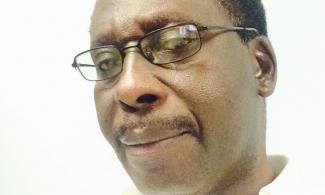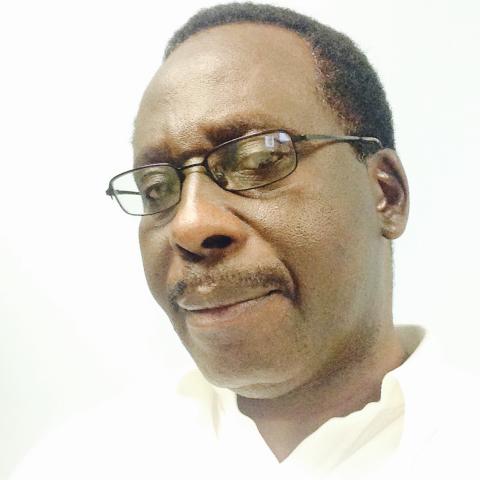
The Buhari administration lost most of its soul and much of its national appeal in the last few months. But it exploded in recent weeks.
When we watch President Muhammadu Buhari's administration, we see a series of crashes. The ministers are like large trucks. The Central Bank Governor Godwin Emefiele, Chief of Staff to the President, Abba Kyari, the Army Chief of Staff Tukur Yusuf Buratai, the Attorney General Abubakar Malami, the Code of Conduct Tribunal Chairman Danladi Umar, the President's 4 or 5-member Daura-Katshina Kitchen Cabinet are like sedans. The Inspector General of Police Ibrahim Idris, Director General Chief of the State Security Service (SSS) Lawal Musa Daura, are like sports cars without wheels. The driving and the ride couldn't be anything else other than fender-bender with all the different makes and models dented and damaged in a head-on collision. Can you hear the crash?
What a unfitting tribute to unforgiving times we face in Nigeria. The Buhari administration lost most of its soul and much of its national appeal in the last few months. But it exploded in recent weeks. The administration has not moved the needle of the economy figuratively and literally.
In a recent exclusive interview on the economy with The Interview, a monthly publication, President Buhari said the Vice-President Professor Yemi Osinbajo is the head of his Economic Management Team. The Interview queries the President: “You have been criticized for not having an economic team. Don't you think you need one?” The President shot back: “What do you mean by team? The Vice-President heads our economic management team. You have a finance minister, a budget, and planning minister, a minister for industry, trade and investments, a governor of Central Bank, a national economic adviser, and others, yet some still ask for a team. I don't know how you define the word, 'team'.
August 22, 2016, SaharaReporters published a story titled “Buhari Seeks Emergency Powers to Tackle Economy” The story was credited to The Nation Newspaper. “Government sources said the decision to seek emergency powers for the President was based on a proposal from the economic team headed by Vice-President Yemi Osinbajo,” reports SaharaReporters. According to SaharaReporters, “The objectives of the action-plan on the economy include shoring up the value of the naira, creation of more jobs, boosting of foreign reserves, reviving the manufacturing sector and improving power.”
The mandate given to Mr. Buhari March 28, 2015 was clear and challenging: rescue Nigeria from the throes of its worst economic depletion, and social and political depression. The President should realize that this recession is a serious and stubborn recession so much that the old solutions won't work. The country is in disorder and in disarray. Government policies and programs have been chaotic, confusing, and contradictory. Mr. Buhari's economic, social, and political incoherence is sure recipe for unrest. Nigerians aren't sure of the future or even present cause. The intoxicating mix of the President's foot dragging, indecision, and aloofness make the situation lethal. The President shows no pragmatism, no flexibility, and no aggressiveness to turbo charge the ailing economy.
We elected Mr. Buhari as President because we see him as the paragon of leadership, a father-figure who re-assured a desperate and frustrated nation that he was up to the task. We expect the President to bring sizable coterie of seasoned advisers to a degree unprecedented in the history of our nation. With able advisers we expect him to stabilize the Nigerian financial system, provide relief and jobs to the suffering, and re-energize Nigeria's capitalist economy. We expect him to re-create the role of the federal government in Nigerian economic and political life. We expect him to meet the immediate crisis of starvation and the dire needs of the nation's army of the unemployed by establishing public relief programs.
Because the President does not possess the expertise required to manage the national economy, an advisory body is needed to advise the President on domestic and international economic policy. Mr. President, you need a new economic crack team. Disband the Osinbajo team and replace with Council of Economic Advisers (CEA) similar to what the US have. The CEA should comprise at minimum three members and at maximum five appointed by the President, including a chairman subject to Senate approval. Each appointee should be a person trained and educated in economics. It'll be a group of distinguished economic high level economic professors and economic analysts.
They must have academic background that provides a high level of technical sophistication. They must be able to forecast growth, inflation, and employment. They must be able to see what happens if they change certain assumptions. The CEA will advise the President on economic policy. It will provide much of the objective empirical research for the President and prepares annual economic report of the President. The report will give the economic background that supports the President's annual budget. It will explain what's happened to the economy over the past year and forecast growth for the next year. They must be qualified to analyze, appraise, and interpret economic data and government programs, as well as formulate and recommend national economic policy.
The CEA will promote employment by way of job creation, production, and purchasing power. It will make recommendations for new legislation setting interest rate policy, export and import policies as well as suggest cuts or increases in government spending on general or specific budget items. It will review economic indicators. Each month it will provide the joint National Assembly Economic Committee a summary of crucial statistical areas – Gross Domestic Product (GDP), which means total economic output, income and employment, production and business activity, and inflation. It will also report on financial statistics like the size of the money supply and credit, security markets, federal finance and international statistics. It'll review federal agencies – their relevancy, duplication, redundancy. Suggest ways to avoid future economic crises or end existing ones, recommends ways to maintain employment and production. Provides economic research reports, provides sophisticated guidance to the President as he formulates policy and prepares annual budget.
The President doesn't need any emergency economic powers to jumpstart the economy. Nigerians are so confused about why the economy is so bad – and our President isn't telling us much. The government has to step in quickly to boost the economy. At a time when all the nation's eyes are on the President, seeking an answer to what's happening, he choose not to talk about the need for a bold jobs plan but talking about national orientation policy.
In his first address to the Congress, Mr. Obama put his top priority for America's beleaguered workers in simple terms: “ Now is the time to jumpstart job creation.” Known as the American Recovery and Reinvestment Act, it seeks to bring timely relief to 11.6 million unemployed Americans. Shortly after Congress approved $787 billion stimulus plan, Mr. Obama Said: “We have once-in-a-generation chance to act boldly and turn adversity into opportunity, and to use this crisis as a chance to transform this economy for the 21st century.”
Mr. Obama's stimulus package breakdown is as follows: $27.5 billion for highway projects, $340 million for watershed and flood prevention operations, and watershed rehabilitation, $2.5 billion for distance learning, telemedicine, and broadband programs, $150 million for economic development assistance programs, $4.7 billion for a broadband technology opportunities program, $6 billion for local clean water initiatives, $21 billion to laid-off workers with employer provided health insurance through COBRA, $53.6 billion to help states deal with budget deficits, $36.2 billion for energy spending, $19.9 billion for aid to poor families, a tax credit up to $400 for low-and-middle-income individuals and $800 for families, a one time payment of $250 to recipients of Social Security and government disability.
In 2013, the Bank of Japan pursued an unprecedented $1.4 trillion stimulus plan to loosen monetary policy and spur economic growth. The Bank of Japan's shock therapy was designed to jumpstart the world's third largest economy which was hard hit by collapsing exports to China and European Union, falling domestic auto sales, and decelerating post-tsunami reconstruction spending. In 2008, China unveiled an economic stimulus program totaling $586 billion, aimed to bolster domestic demand and help avert a global recession. The plan includes spending in housing, infrastructure, agriculture, healthcare and social welfare, and a tax deduction for capital spending by companies.
Last year, South Korea reeled out a stimulus rescue worth 16.1 trillion won ($14.31 billion) to jumpstart Asia's fourth largest economy as it fought to overcome the twin challenges of weak domestic and global demand. “Our fiscal soundness will worsen temporarily,” says Bang Moon-Kyu Vice Finance Minister, “but we have decided it is more important to make the economy recover early on and create a sturdy fiscal foundation,” says Moon-kyu.
The US President, the Japanese Prime Minister, and the South Korean leader in the examples cited above, didn't ask for any special emergency powers to jumpstart their economies. They did what they have to do. All the President needs is activate his presidential initiatives and executive powers, and craft a job stimulus package bill and send it to the National Assembly. If the Osinbajo team doesn't know what to do and where it's headed, why not just copy and paste the Obama stimulus package that jump started the American economy? The magnitude of the current unemployment crisis demands a boldness and urgency that's utterly lacking.
You can reach Bayo at [email protected].
